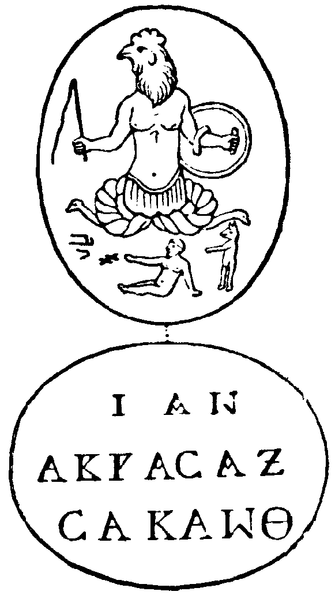Full and edited version of book can be found on
Amazon
https://www.amazon.com/dp/154374589X/ref=sr_1_1?s=books&ie=UTF8&qid=1524926620&sr=1-1&refinements=p_27%3AAlexander+Maistrovoy
III-4.7 The skating rink of History
“We shall leave this world here just as stupid and evil as we found it upon arrival.”
Voltaire
Everything comes full circle, “around and around goes the wind, and on its circuits”, and grandiose events of every century, in which we see sense or Design, are no more than ripples on the water: transient and random.
There is no predetermination, consistency or conditionality. The arm of coincidence rules History, and not the Providence or the laws of social development. “The forces acting in history do not obey either predestination or mechanism but the vicissitudes of a fight… They always manifest themselves in a unique fortuity of an event. … A true historic feeling prompts that we live without special markers and original coordinates in the myriads of lost events. …A grandiose game of history – that’s who the rules obey”, wrote Michel Foucault, and the whole life of the humankind proves the truth of his words.
The fate of the nations is no more than “Russian roulette”, the derivative of geographic, climatic and random factors. How to justify the ordeals of so many nations who suffer and disappear off the face of the Earth for no other reason than finding themselves on the path of History as they happened to live next to the Empires concerned with their constant expansion, asks Mircea Eliade. “How to justify, for example, the fact that southeastern Europe had to suffer for centuries - and hence to renounce any impulse toward a higher historical existence, toward spiritual creation on the universal plane - for the sole reason that it happened to be on the road of the Asiatic invaders and later the neighbor of the Ottoman Empire?”.
And if by a lucky chance a skating rink of History passes over the nations happily distanced from the paths taken by the large armies of conquerors, like Scandinavians, or mercifully distanced from the global cataclysms by the seas, like the English or Australians, this doesn’t mean that they are entitled to pass their assumptive judgements on those who found themselves to be in in the midst of windstorms.
Man is powerless and lost in the surrounding world. Let’s agree with Eliade: “Modern man’s boasted freedom to make history is illusory for nearly the whole of the human race. At most, man is left free to choose between two positions: 1.) to oppose the history that is made by the very small minority; 2.) to take refuge in a subhuman existence or flight.”
Our century did not change anything: chaos, a selection of random factors, lawlessness (hidden or open) of a handful of people – mostly cynical and narrow-minded, and the ambivalence of a “person of no consequence” is a sad and unchangeable reality of life.
The players, decoration and foreground change but the script remains the same. Forms and methods improve but the essence remains unchanged. The essence is doomed to remain invariable: escaping from horror and drudgery of being, from own “dark oneself” – to the mirages of happiness and freedom, and an inevitable consequent return to the boggy quagmire of existence. Neither Man nor the humankind determines its destiny bur a merciless Fate – Heimarmene – which rules this world.

III-5 The Creator’s laboratory
“Forget about life and the world and you will see the Life of the World”
Jalal ad-Din Rumi
So, the time has come to draw conclusions. Like the planetary world, the Earth and nature present a unique inimitable Creation, the embodiment of a masterful mathematical calculation and pinpoint precision without which the Cosmos would sink into the darkness, the same way a mental and spiritual constitution of Man is the result of the intricate and finest combination of the incompatible. An astonishing structure preserving stability on the brink of the desirable and the impossible; a being balancing over the abyss but never falling down there; Eros and Thanatos joined together as if a great alchemist measured the exact portions of horror and delight, and, having mixed them together, obtained a composition – uniquely resistant, fluid and light. Abraxas who “begetteth truth and lying, good and evil, light and darkness” and, therefore, is so terrible.
...This Creator is neither merciful nor harsh, neither virtuous nor wrathful, neither omniscient nor just. He is indifferent and “worries about people no more than about monkeys and flies” (Celsus). He is not interested in Pascal’s man who “who lost his way or place and is seeking for it restlessly and unsuccessfully in impenetrable darkness”, he thinks in human masses and millenniums. He is the God of Deists, far removed and indifferent to the world. He has own goal which we are not destined to understand and know, and we can’t either make a judgement on him or all the more judge him.
In the essay “Civilization on Trial”, written in the wake of the horrors of two world wars, Arnold J. Toynbee wrote that “It is hard to conceive of a loving God as creating this, or any, world of sentient creatures not for its own sake but merely as a means to some end in another world for whose blissful denizens this world is a waste land beyond the pale. It is even harder to conceive of Him as deliberately charging this forlorn waste land of his alleged creation with sin and suffering, in the cold-blooded spirit of a military commander who creates an exercise ground for his troops by taking, or making, a wilderness and sowing it with live mines, strewing it with unexploded shells and hand grenades, and drenching it with poison gas in order to train his soldiers to cope with these infernal machines at grievous cost to them in life and limb”.
Toynbee himself does not want to believe in this gloomy and calculating design but the whole history of the humankind forces us to accept it as an inevitable given.
Incidentally, he himself indirectly acknowledges this imperative when in another chapter of the same essay he writes that “one of the deepest spiritual laws that we know is the law that is proclaimed by Aeschylus in the two words ‘it is through suffering that learning comes’ - and in the New Testament in the verse ‘For whom the Lord loves He chastens, And scourges every son whom He receives’”.
The Bible as a provocation, isn’t it?
Our world is similar to a cell where pathological sadists set their intricate experiments and ruthless overseers rule. But if by chance Man finds himself in a medical laboratory, where the experiments over rational beings – monkeys, dogs and rats - are in progress, then, stricken by repulsion and anger, will he decide that there is a gathering of maddened fiends in front of him? And will his impression not be in part the truth? But only in part and only in its minor part…
We feel his Design in everything – from perfectly adjusted mechanism of celestial bodies system to the unmatched structure of bacteria, from dragonfly’s eye to human DNA, from the mystery of human origin to computer and Stradivari’s violin. Maybe this design is directed at reconstruction of the previously lost harmony of celestial spheres but how helpless and pitiful Man is in this design – lost in his “nothingness, weakness and darkness” (Blaise Pascal). And how distanced and alien to human pain the Creator is…

GOD
“Heart feels God”, Pascal wrote. It is so. This inconceivable, magical, unparalleled feeling fascinating with its warmth and permeating all our being has been and remains available to millions of people. But what kind of God is felt by the heart of a believer?
The Creator? The cold, detached Being contemplating the fate of the world? A great Mathematician thinking in human masses and centuries? A Mechanic who created an irreproachable mechanism of the world and life and laid pain and suffering as a foundation of this life?
It is not this Creator that the heart feels as he, the god of Deists, does not radiate anything the heart could sense – neither warmth nor light or grace. He is conceived by Reason, not the heart, and, as Ernest Renan wrote, the “very last person of the ordinary people, provided that the religion of the heart is alive in him, in his understanding of the essence of things is more enlightened than a materialist who believes that everything can be explained by chance and ultimate causes”.
The heart feels a completely different substance. This substance, God, Pleuroma, emanates the light and aura infallibly grasped by our souls; its rays penetrate our hearts at the most agonising moments of our life. It is infinitely far and at the same time so clearly tangible that the one wanting to acquire it finds it without fail by isolating himself from the world in a prayer or meditation. It has no power over matter and is helpless to change our world, which became a grotesque reflection of higher spheres, but the Knowledge of It is a thin thread which can, unlike the primitive blind and thoughtless religious expression, pull us out of the dungeon where our souls are enclosed. This is also the knowledge of “who we were, what we became; where we were, where into we have been thrown; where to we speed, where from we are redeemed; what birth is, and what rebirth”.
Man is cornered by the merciless laws of the Creator; he is agonisingly cramped, stuffy and frightened in “the closet of the Creator” but it is in his power to throw a gangway over constantly raging dark elements of this world to a divine harbour – Pleuroma. And this is his only salvation. The hostage of relentless Fate, Man is foredoomed to remain in the black hole of fear and instincts but, fortunately for him, he is endowed with a soul - the Pneuma - which can take him to other dimensions and worlds.
“If a person has the Gnosis, he is a being from on high”.
|